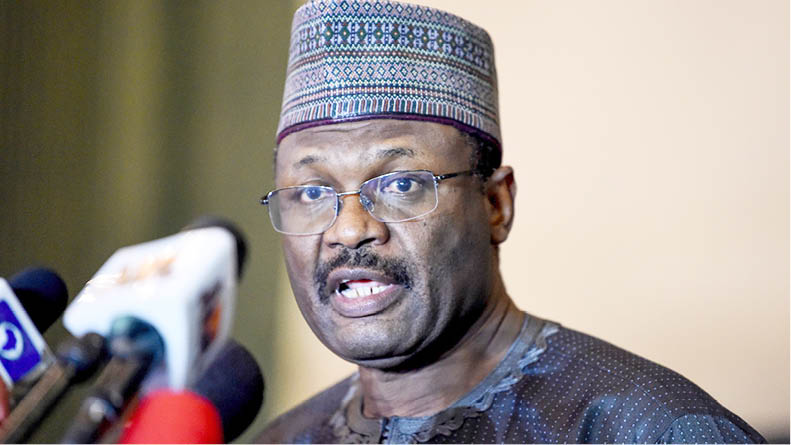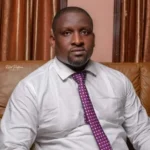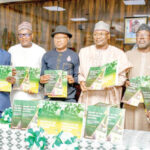Ahead of the release of the 2023 general elections timetable, the Independent National Electoral Commission (INEC) has said that it would beam its searchlight on politicians and political parties in a bid to track the sources of funds for their campaigns.
The INEC Chairman, Prof. Mahmood Yakubu, said this on Friday in Abuja at a “High-Level Policy Roundtable Conference on Political Campaign Finance,” organised by The Electoral Forum.
- Nigerians demand justice for baby Hanifa killed by school proprietor
- One year after Igangan invasion by Igboho: Evicted Fulani leader, others seek justice
He said that the commission would also monitor the movement of money on election days to help tackle vote-buying at polling units (PUs), adding that it would set up teams to monitor election spending ahead of the elections.
Yakubu represented by INEC’s National Commissioner and Chairman, Election Party Monitoring Committee, Prof. Kunle Ajayi, said that through the Economic and Financial Crimes Commission (EFCC), commercial banks would be mandated to report all suspicious transactions ahead of the election, warning of sanctions to any bank that failed to cooperate.
“As long as we have not notified anybody that the race to the 2023 general elections has started, we are not unaware of what anybody is doing. We follow the law strictly.
“We have not officially declared notice for the 2023 general elections, but when we so declare, we will put our monitoring committees to motion like the central banks, the DSS, the EFCC, the ICPC, the (commercial) banks and other law enforcement agencies. We have that plan already.
“Every candidate must be made to declare his bank asset. That is where they draw out their money so we will make them to present their statement of account right from the onset. We will make it mandatory for them to turn in their bank statement so that if they say they are doing billboard and the account remains the same, then there is a problem,” he said.
On his part, Chairman, The Electoral Forum, Prof. Adebayo Olukoshi, said that electoral finance is a question of money politics, one which has exercised the minds of scholars and policy makers not just in this country but around the world.
Prof. Olukoshi said that Nigeria has witnessed an increase of enormous proportions in what it costs to run and win elections.
He said that mind bugling resources were usually deployed by politicians to win power and this had been of concern because of criminals or people entering the political system using illegal or illicit money to buy power as it were.
“So it really is an important issue to confront as we move into an election year and intents and campaigns have already started in the lead up to 2023. The threshold was defied on what candidates may expect which raised a lot of other questions, of whether those levels have not been set at a height that effectively might exclude rather than include potentially good candidates.
“What we call money bags are probably the ones who are likely to be able to raise some of those kinds of resources that are defined within the parameters of the law,” he said.
He said that more than that, INEC needed the capacity to monitor the funding to be able to actually hold political parties and their candidates accountable to ensure that they do not exceed what is legally defined as the acceptable limits.
In her welcome address, the founder and Director of The Electoral Hub, Princess Hamman-Obels, said that money played a significant role in the electoral process of Nigeria.
She noted that politicians were spending billions of naira to secure not only candidacy from parties, but also victory at the polls.
“Corruption has also has also increased the influence of money in the electoral process, as practices such as vote buying and selling have become norm during elections. The result is that without access to huge amount of money, it is incredibly difficult, if not impossible, to contest for elections in Nigeria,” she said.
Also, a former Chairman of INEC, Prof. Attahiru Jega, identified the lack of accountability and transparency in political campaign financing as key factors responsible for some challenges facing Nigeria’s electoral system.
Meanwhile, the Independent National Electoral Commission (INEC) has debunked claims that the Permanent Voters’ Cards (PVCs) it issued in 2011 needed to be revalidated at the INEC offices for it to be valid for the 2023 elections.
The chief press secretary to INEC chairman, Rotimi Lawrence Oyekanmi, said this yesterday in Abuja.
He said the report that the INEC’s card readers would not recognise the PVC issued in 2011 for the forthcoming 2023 elections was false.

 Join Daily Trust WhatsApp Community For Quick Access To News and Happenings Around You.
Join Daily Trust WhatsApp Community For Quick Access To News and Happenings Around You.


